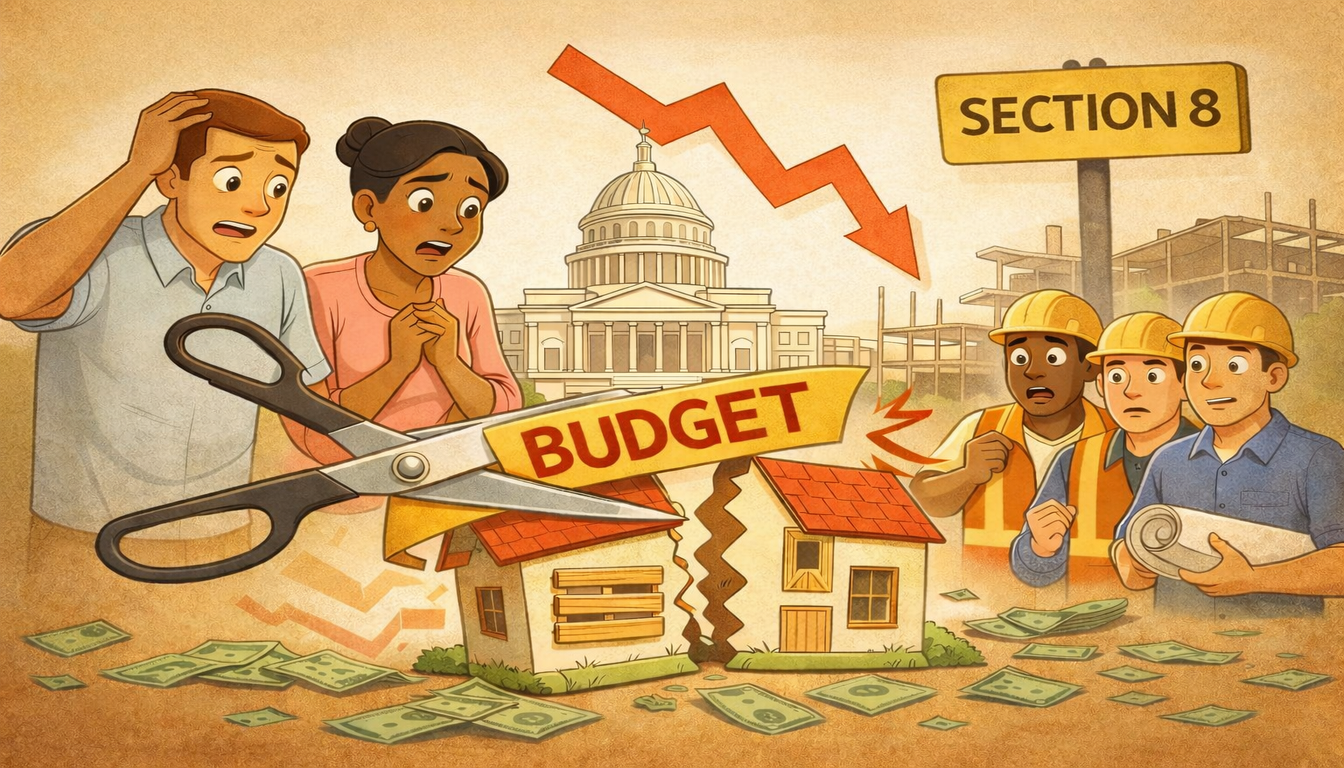
With Donald Trump back in office, the Department of Housing and Urban Development (HUD) is already seeing major policy shifts. From funding cuts to fair housing rollbacks, the new administration is moving quickly to reshape housing assistance programs, including Section 8 and public housing.
Key changes include HUD restructuring, funding cuts, fair housing rollbacks, and new work requirements for housing assistance. If you rely on public housing or Section 8 vouchers, these changes could affect eligibility, affordability, and availability. Staying informed is critical. Check it out.
HUD Restructuring: What's Changing?
The Trump administration is pushing to shrink HUD's role, shifting responsibility for housing assistance to states and private entities. This could mean:
-
Less federal control - States would set their own rules for housing assistance, leading to major differences depending on where you live.
-
More privatization - Increased reliance on private developers and landlords to provide low-income housing.
-
Fewer tenant protections -Without strong federal oversight, tenants may have fewer rights when dealing with housing issues.
For Section 8 renters, this could make finding landlords who accept vouchers even harder, as states may reduce funding or impose stricter rules. This is why tools like the Section 8 Search housing search feature are now more important than ever. You can use it to find available vouchers, open waitlists, and affordable housing in your area.
Funding Cuts: Section 8 and Public Housing at Risk
One of the biggest threats to housing assistance is budget cuts. The administration is proposing reductions in HUD funding, affecting:
-
Public Housing Capital Fund -Cuts could lead to deteriorating conditions in public housing.
-
Housing Choice Vouchers (Section 8) -Fewer new vouchers could be issued, and some states may tighten eligibility rules.
The House Appropriations Subcommittee's 2025 bill proposes a 7.5% cut to HUD's overall budget, forcing local housing authorities to reduce the number of vouchers available. If you're on a Section 8 waitlist, check with your local Public Housing Authority (PHA) or use Section 8 Search's waiting list tool to stay updated.
Worried about your Section 8 application? Read Section 8 Application Denied? Here's What to Do.
Fair Housing Rollbacks: Discrimination Protections Weakened
Trump's first term eliminated the Affirmatively Furthering Fair Housing (AFFH) rule, which required cities to address segregation and discrimination in housing. Now, his administration is rolling back fair housing policies even further:
-
HUD's Office of Fair Housing and Equal Opportunity (FHEO) is being downsized - Fewer investigations into housing discrimination cases.
-
Weaker enforcement of the Fair Housing Act - Landlords and local governments face less scrutiny for discriminatory practices.
-
AFFH rule replacement with a weaker policy - Cities and states may no longer be required to take active steps to combat housing discrimination.
For low-income renters, people of color, and disabled tenants, these changes could mean more difficulty finding housing and fewer legal protections against discrimination.
If you've ever struggled to find a landlord who accepts Section 8, this could make things even tougher.
Scott Turner Takes Over HUD: What to Expect
Trump's new HUD Secretary, Scott Turner, has a history of favoring private investment over federal programs. As leader of Trump's Opportunity and Revitalization Council during his first term, Turner focused on tax incentives for developers rather than expanding affordable housing programs.
His priorities at HUD are expected to include:
-
Pushing for work requirements for Section 8 and public housing.
-
Reducing federal oversight in favor of state-run housing programs.
-
Encouraging private sector involvement in affordable housing, which could mean more public-private partnerships instead of direct federal aid.
With Turner at HUD, expect a shift away from direct government support toward private sector solutions, which could mean fewer protections and less stability for low-income renters.
Work Requirements: Who Will Be Affected?
One of the most controversial changes already in motion is the introduction of work requirements for housing assistance. The new rules could require:
-
Section 8 recipients to prove they are employed or actively looking for work.
-
Public housing residents to meet minimum work hours or participate in job training programs.
-
Stricter rules for single parents, disabled renters, and older adults, groups that may struggle to meet work requirements.
While seniors and some disabled individuals may be exempt, many low-income renters risk losing their housing assistance if they don't meet these new requirements.
Many experts argue that work requirements don't actually reduce poverty, they just make it harder for vulnerable people to stay housed.
How This Affects Section 8 Renters and Public Housing Residents
If you rely on Section 8 or public housing, these changes could affect your housing situation in several ways:
-
Harder to get a Section 8 voucher - Fewer new vouchers may be issued, and waitlists could grow even longer.
-
Stricter eligibility rules - Work requirements and state-level restrictions could disqualify more people.
-
Increased risk of losing assistance - If you don't meet new requirements, you could lose your housing aid.
-
Fewer legal protections - Weaker fair housing rules may make it easier for landlords to reject Section 8 tenants.
For renters already struggling, these changes could mean higher housing instability and increased homelessness.
Need help navigating housing options? Read Homelessness Rises by 18%---What You Need to Know.
What You Can Do Now
With HUD policy shifting quickly, staying informed is critical. Check with your local PHA, monitor HUD budget proposals, and know your tenant rights. If Section 8 is harder to get, explore alternatives like low-income tax credit properties or public housing. Looking to use Section 8 for homeownership? Read Use Section 8 to Buy a Home---Here's How.
Final Thoughts
The Trump administration's HUD policies are bringing significant changes to public housing, Section 8 vouchers, and fair housing laws. With funding cuts, work requirements, and reduced federal oversight, low-income renters face new challenges in securing stable, affordable housing. If you rely on HUD programs, now is the time to stay informed and prepared.
For ongoing updates on HUD policies and affordable housing, sign up at Section 8 Search: section8search.org/sign-up. Use our housing search tool to find Section 8 rentals, affordable housing, and open waiting lists today.
Navigating the Section 8 housing process can feel overwhelming, and that's where Section 8 Search comes in. We're more than just a listing website; we're a dedicated resource designed to make finding housing under the Housing Choice Voucher Program straightforward and stress-free. Our platform offers user-friendly tools to explore listings and waiting list statuses nationwide, all built on official HUD data. We're also passionate about providing clear, helpful information and guidance, empowering you with the knowledge you need to understand eligibility, complete your application, and confidently navigate your housing journey.






.png)
.png)
.jpg)



.png)
.png)
.png)





.png)